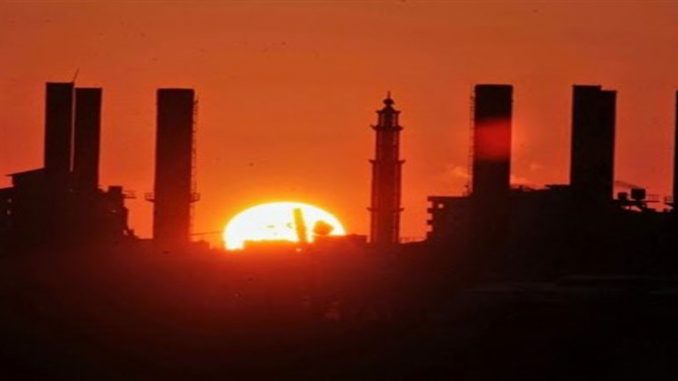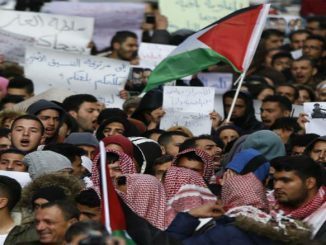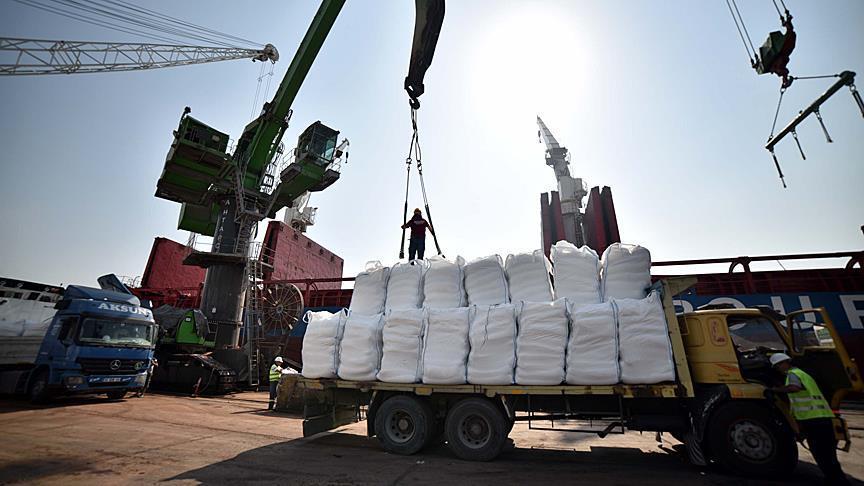
As the political and electricity crises in the Gaza Strip has continued to deepen, United Nations (UN) Special Coordinator for the Middle East Peace Process Nickolay Mladenov released a statement on Wednesday calling for a united approach to the “tense” situation in the besieged coastal enclave.
Mladenov called for major reforms of the Gaza Electricity Distribution Company (GEDCO), imploring Hamas, the de facto rulers of Gaza, to “ensure that collection rates are improved and that revenue collected in Gaza is returned to the legitimate Palestinian authorities in order to keep fuel and electricity supply flowing,” referring to the Fatah-led Palestinian Authority (PA) in the occupied West Bank, which provides the Gaza strip with fuel to run its sole power plant.
“All in Gaza must share the burden by paying their bills. It is the poorest Palestinians in Gaza who pay the price for exceptions and privileges that others enjoy,” Mladenov said.
Mladenov called on the international community and Palestinian leadership to upgrade the electricity grid in Gaza, which currently provides a power supply that is less than one third of the daily consumption in Gaza.
The representative also called on the PA to facilitate the purchase of fuel for Gaza’s power plant “under conditions that temporarily alleviate or substantially reduce relevant fuel taxes,” referring to PA-imposed fuel taxes that sparked outrage in recent days, leading authorities in Gaza to accuse the PA of causing the ongoing crisis.
According to Deputy Chairman of Gaza’s power authority Fathi al-Sheikh Khalil, operating the power plant’s two generators costs 50 million shekels ($13.67 million) with these taxes as opposed to 20 million ($5.47 million) without.
Mladenov also placed responsibility on Israel, calling on the government which has imposed a near decade long blockade on Gaza, “to assist by facilitating the entry of materials for repairs and maintenance of the grid and power plant,” stressing also the importance of repairing and upgrading Egyptian power lines, which even at full working capacity in conjunction with Israeli electricity grids and Gaza’s power plant, fail to cover the Gaza Strip’s energy needs.
“The social, economic and political consequences of this impending energy crisis should not be underestimated. Palestinians in Gaza, who live in a protracted humanitarian crisis, can no longer be held hostage by disagreements, divisions and closures,” Mladenov said.
Mladenov’s statement came hours before the Gaza Ministry of Health said that it was forced to reduce health services as it was “entering a tough phase due to the electricity crises and lack of fuel in hospitals and medical centers.”
Ministry spokesperson Ashraf al-Qadra said in statement that the electricity crises forced the ministry to “reduce services” in hospitals, without specifying which services were being cut.
Gaza’s sole power plant shut down on Sunday after fuel supplies funded by Qatar and Turkey in January dried up.
On Monday, GEDCO explained that it could only distribute 133 megawatts a day to the Gaza Strip’s districts, which consume between 450 and 500 megawatts. The Israeli grids provide 120 megawatts, while Egyptian grids are able to provide only 13, after one of the Egyptian power lines was disconnected last night.
Gaza’s power authority warned of an imminent shut down of the plant last week, and on Friday, temporarily cut off electricity to all districts in protest of “unfair measures” imposed on the coastal enclave, as Hamas and the PA continued to blame each other for the crisis, aggravated by a decade-long political dispute between the factions.
The PA has meanwhile argued that the Hamas movement was responsible for “creating a new crisis in the Gaza Strip,” using near identical terms in accusations lobbed by Hamas at the Fatah-led government.
Political rifts between the two factions grew wider on Tuesday after Hamas rejected the prospect of holding bilateral meetings with a Fatah delegation expected to arrive to the territory, saying that bilateral talks would “only cement the siege imposed on the Gaza Strip.”
Hamas had called for demonstrations “against the ongoing conspiracy being perpetrated against Gaza,” in an official statement on their website.



